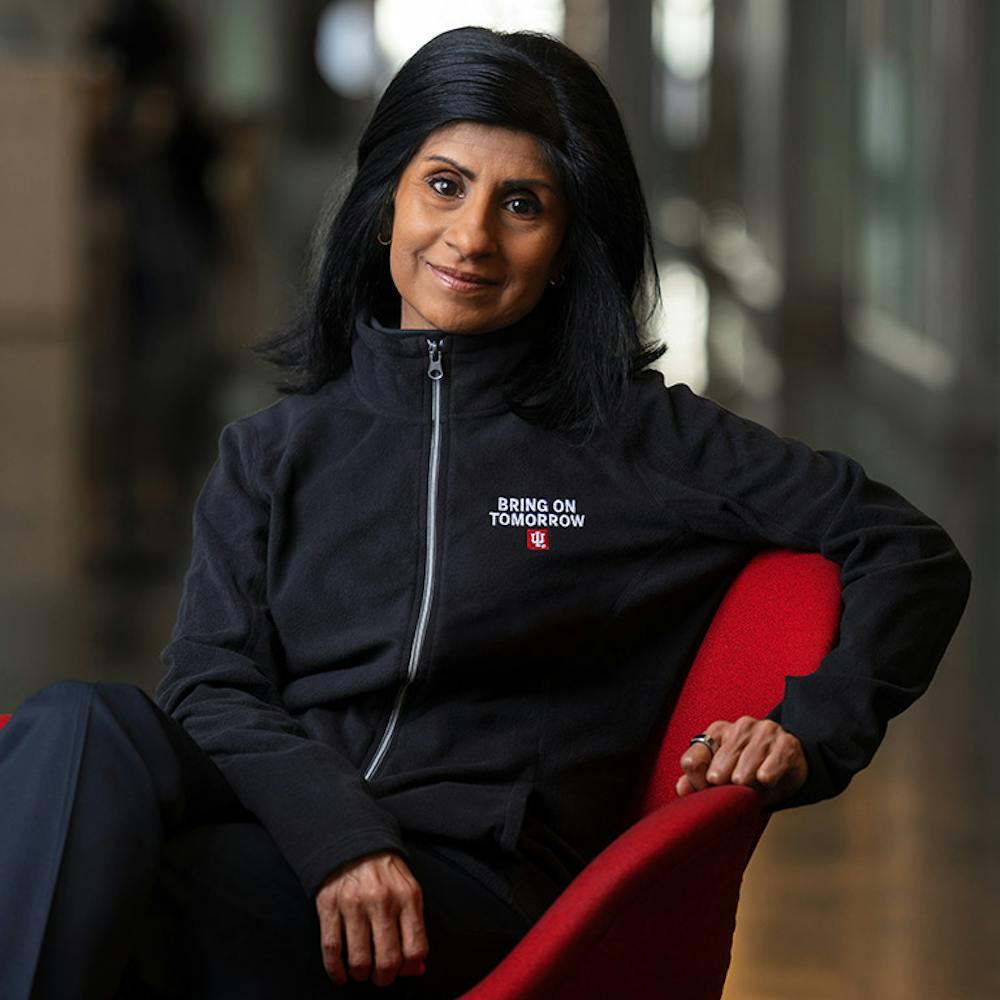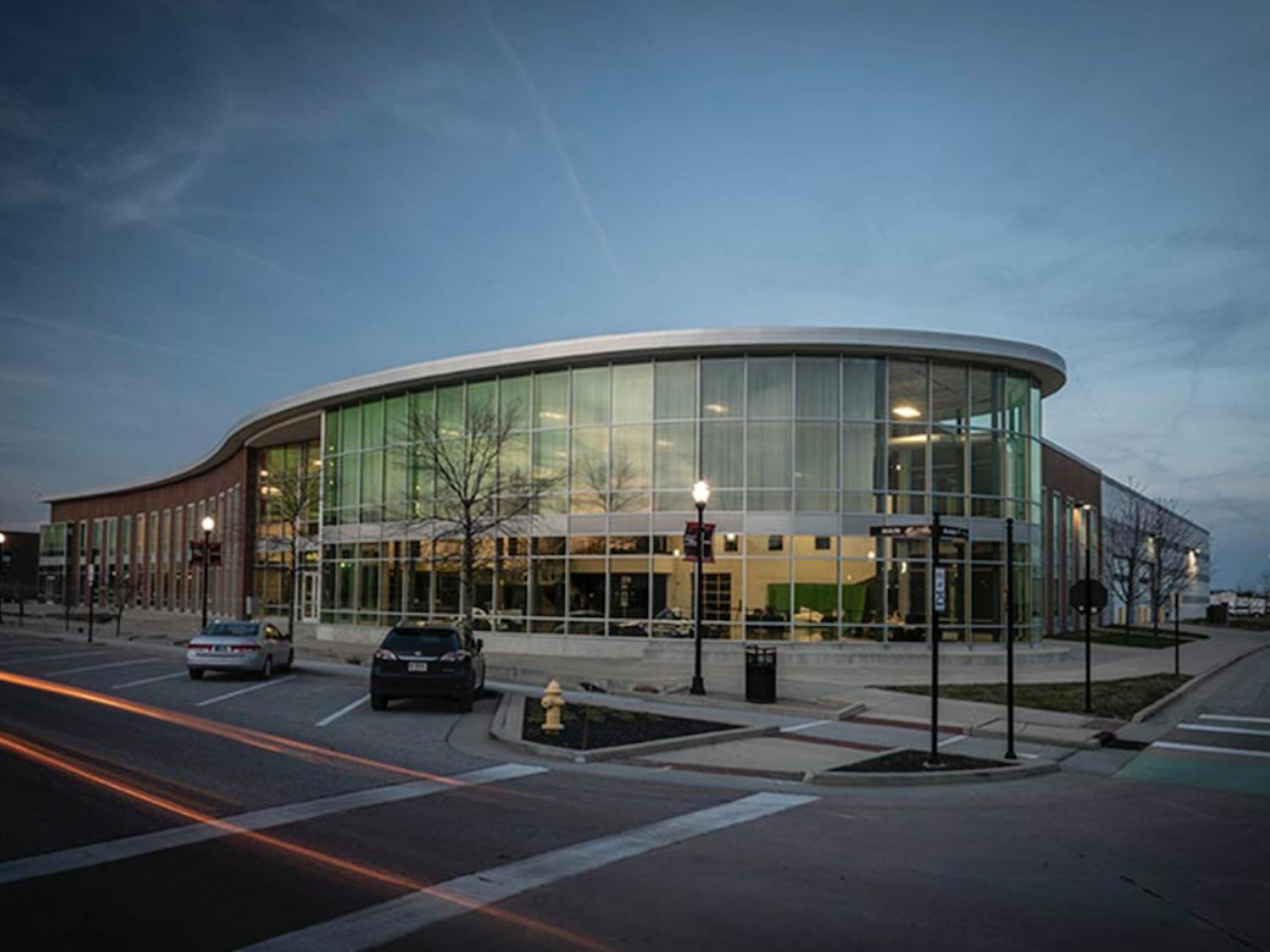On Feb. 12, Latha Ramchand officially took her place as the inaugural chancellor of IU Indianapolis. She met with students, faculty and staff at a welcome reception, and had meetings with various groups on campus. Among her other activities, The Campus Citizen was invited to interview Ramchand on her first day in office.
Q: What drew you specifically to apply to be the chancellor for IUI?
A: First off, I saw the appeal of an urban campus, coupled with the mission to do research that can really improve the lives of human beings in a very tangible way. If we're talking about this, this region of the country is known for bioscience and life sciences. The university can be what I call the “knowledge partner” to that industry, by doing the kind of research that helps us improve the medical devices we produce, or the biomarkers that help us diagnose diseases, or using better techniques for drug discovery. If our research can actually influence those kinds of decisions that could improve your life, my life and the lives of everyone- we're all going to deal with some kind of disease at some point, right, or a related challenge- that is a real impact to me of the research that we do on a campus that's very appealing. Because it not only says, “This is what we're interested in,” but it takes that and says, “This is what this industry in this country in this region needs and is capable of.”
The second part of that is, when you tie that to the student experience, what you find is that as a result of that, because we have industry here, because we have a community that affords us the opportunity for our students to work with us, communities to work with, and industry to be in, in a city like this, our students are better prepared on day one of their jobs. So, you have experiential learning opportunities, you have internships, so our students graduate, not just with a degree, but certain work skills that are valuable. And that puts them ahead of the curve when it comes to the actual jobs and careers that they choose to pursue. In doing that, we actually can graduate the workforce, but also the leaders of tomorrow for this region. So that, to me, is very appealing, and what I want to stress is that a great proportion of our students who graduate from here choose to live here after graduation. They choose to live in this part of the country, that's not common. And so that's why I feel like 10 years from now, if you can say, “Everyone who is anyone in Indianapolis and Indiana went to IUI,” right? That's a compelling story, which is, “Oh, that school is doing something to graduate the leaders for that city in that state.” So that, to me, was appealing.
Last, like I said, the second part of it was the research, that is really about making a tangible difference that I can relate to, every one of us can relate to, and doing it in a way that makes sure that we partner with industry, that we partner with opportunities, for a compelling reason.
Q: What are some of your current goals for IUI?
A: As you know, President Whitten, under the stewardship of the Board of Trustees, has a really nice plan, or vision, for 2030. And under that, there are three pillars, with several goals. And based on that, IU Indianapolis has its own version. And then, our goal under each of these is growing student enrollment, making sure we graduate the kind of students that industry needs, making sure that we graduate students who not only have a technical background, but also complement that with liberal arts, so that we also graduate students who can be leaders of our democracy, and who will have the right values to make the right decisions. So, those are goals that are already in place, and, if we can achieve those goals in a short time frame, doing so will be my goal.
Q: What are some future initiatives or goals that you plan to work toward in the coming months/years?
A: In the coming years, we, first off, need to make sure we implement those goals, whether it's going into enrollment or going into research, and making sure we are the right kind of service provider to the community. In terms of short-term goals, I think some priorities would include making sure that I connect with different groups to understand what their immediate needs or their concerns are, and to make sure that as we go through this transition starting July 1, we have things in place, not just in terms of the details, but also in terms of mindsets, so that we honor what has been done and what has been created on this campus. Honor the legacy that exists after years of amazing work by faculty, staff and students, but also realize that that's a legacy we’ll build on moving forward. And making sure the vision looking forward is going to be a really, really strong vision that we can all buy into. So making sure that we all bought into that vision, making sure that we can speak as a collective whole, is going to be a short-term priority.
Q: What do you plan to do in order to continue supporting IU and Purdue students through the split?
A: Some of the details are being worked out, right? So the teacher details, and who's going to teach what? And what about the student organization? So, making sure that we have a way to deal with all the questions that concern students, and making the answers available to students is going to be a top priority. And then, of course, talking to students about other concerns that we may not have anticipated during the transition. I started my day today [by] meeting with students, the chancellor student advisory board, as well as the student mental health council. They had some really good ideas, as well as just good input for me to hear. Meeting with students often not only allows us to listen to what they have to share, but also allows us to communicate what we're doing, which, even if you communicate things via email, or put it on websites, word of mouth still makes a big difference. So, when a student talks to another student and says, “Hey, you know, this is what's happening,” to me, that's way more powerful than an email from the chancellor's office. You probably will listen to your friend more than you’ll read an email, so it's that kind of opportunity we have to meet with students and to listen to them, but also make them a part of our communication cycle.
Q: What are three things that you feel IUI students should know about you as their chancellor?
A: Well, they should know that they can always reach out, contact our office, especially if they have concerns that I can help with.
They should also know that I am here for the long run, in the sense that I really want to make sure that we make decisions that are good for this university, not just that made me look popular, which means looking at the next five, 10, 15, 20 years. Those decisions are not always consistent. What is good today may not be good over a long period of time, right? For example, I love to eat cookies, and a sweet makes me feel good today, but then not later. So, it's those kinds of things that I think are important.
The third thing would be just making sure that I look at this role as a service role. We don't just get these titles, we have to own these titles every day and go beyond these titles by serving our students, our faculty, our staff and, of course, the community. I look at it as every day is a day for myself within this role to come here, to work and to make the case for why this role needs to be a chancellor. So I think that that sense of service is a big part of my mental ecosystem.
Abigail Godsen (she/her) is a sophomore majoring in Applied Information Sciences with a minor in Classics. She is a reporter, podcast co-host and Lead Copy Editor for The Campus Citizen. When she isn’t writing, Abby likes to cook, do crossword puzzles and drink a lot of tea. She can be summoned using tea, cardigans and books (according to her roommate Jackie).





